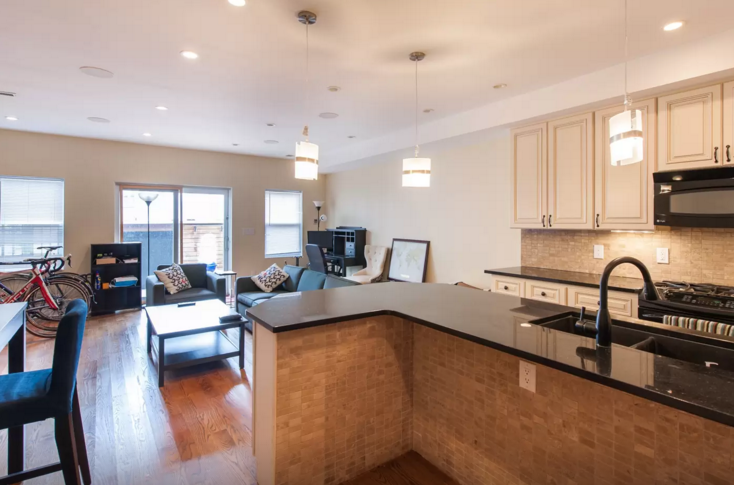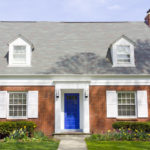Airbnb Impacting Housing in Washington D.C.
There is a worsening housing crisis in the District, and city regulators are attempting to ease the pressure on homebuyers and tenants by cracking down on short-term rentals. There are more than 31,000 hotel rooms in Washington D.C. alone, yet it has become increasingly popular for tourists and business travelers to seek lodging through services like Airbnb. The question remains whether the proposed regulations will improve the situation for future residents or hurt some existing homeowners.
How Home-Sharing Might Help Some Residents
Let’s face it – living in the District is expensive. In the past year alone, it has become $5,000 more expensive to rent a two-bedroom apartment in Washington D.C. A resident in the District would need to make $69,840 a year to afford one of these apartments if they spent one-third of their income on housing. Even though the city is seeing an increase in housing construction, it isn’t of the affordable variety. This is where home-sharing comes into the picture for many D.C. residents.
For many people living in expensive housing markets like Washington D.C., home sharing has become a sort of lifeline. Hosts that open up rooms in their homes, or that are able to rent out their entire homes for weeks out of the year, can earn thousands of dollars that they apply to rent, mortgage payments, debt, retirement savings, and other living expenses.
From Home-Sharing to Illegal Hotels
That extra cash earned by legitimate homeowners has unfortunately caught the eye of some investors. This is where the District is seeing a potential squeeze resulting from affordable housing being pulled from the market in favor of short-term rentals. For example, 20 rent-controlled homes in Columbia Heights were converted into a privately-owned full-time Airbnb operation. An Armenian company has snapped up 70 homes in the District and converted them into illegal hotel rooms. There is an open lawsuit against this group courtesy of the District’s Attorney General. Another rent-controlled apartment building in Adams Morgan was found to have Airbnb listings for eight of its twelve units going back as far as 2015.
Will D.C.’s Proposed Regulations Help or Hurt?
The difference between home-sharing and illegal hotels is drastic. The new regulations proposed by Council of the District of Columbia will regulate both. Called the “Short-term Rental Regulation and Affordable Housing Protection Act of 2017,” this law will hand oversight of the District’s short-term rentals to the Department of Consumer and Regulatory Affairs (DCRA).
If passed, the bill will mandate some of the strictest short-term rental restrictions in the nation. Airbnb renters will have to consent to safety inspections of their properties. They will be required to register as a short-term rental and have the permits and licenses required by the city. If Airbnb renters report any concerns about the property, the ability to list short-term rentals in the District could be suspended. Rentals will only be permitted in a host’s permanent residence, and hosts are limited to 15 rental nights per year when they are not present. Fines for violating the regulations can range from $1,000 for the first offense to $7,000 for repeat offenders.
While safety will be improved for short-term rentals, the debate over the new DCRA regulation centers on how it is going to affect the city’s supply of affordable housing. Airbnb reports that 90 percent of its Washington D.C. hosts share space in their own homes. Airbnb worked with the Coalition for Neighborhood Housing and Economic Development (CNHED) to study its usage in the District. Their study found that just 2 percent of the entire District’s housing stock is listed on the platform. Of those only 0.22 percent, or 670 units, are rented for more than 50 percent of the year. CNHED’s Executive Director Stephen Glaude doesn’t believe that home-sharing in itself is impacting affordable housing prices in the District.
As a compromise, it may be a better solution to regulate the number of entire homes that can be leased as short-term rentals within the District. This can be limited as a percentage of total listings. There can also be limits on the number of days that a homeowner or renter can lease their home each year. Both of these would be deterrents to commercial enterprises converting affordable housing into short-term rentals for the sake of profits. In most cases, people are sharing their homes to avoid foreclosure or eviction. While Washington D.C. has an affordable housing issue, developers and regulators likely share the blame as opposed to individual Airbnb hosts.
Contact an Experienced Maryland Real Estate and Construction Law Attorney
If you have questions about your rights as a homebuyer, tenant, or developer, contact the Evans Law LLC to schedule a free consultation. Our real estate and construction attorneys serve clients throughout the Maryland and Washington D.C. area. We can be reached at (410) 626-6009.





